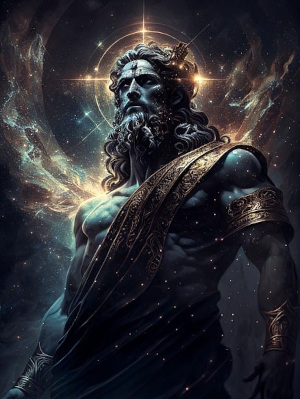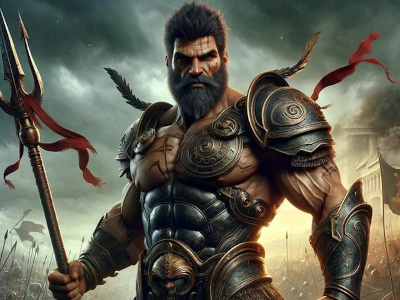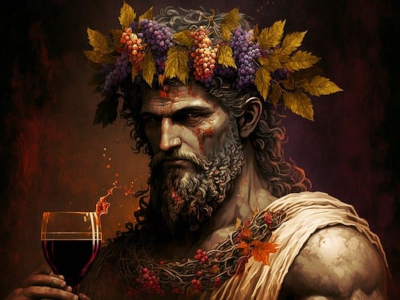In ancient Greece, the stories of gods and goddesses held great importance, providing explanations for various aspects of life, such as death and wealth. This article contains ten ancient Greek gods.
Zeus
Zeus was known as the father of gods and humans. He regulated celestial phenomena and established laws for people. He is referred to as the ‘lord of justice’, because he was both respected and feared. Zeus safeguarded families, watched over mortal homes, and protected strangers from danger. Additionally, Greek mythology is filled with stories of Zeus transforming into various beings to engage with goddesses and mortals.
Poseidon
Poseidon ruled over the sea and was also known as the god of horses and earthquakes. Due to his ability to cause earthquakes, he was often referred to as “the earth shaker.”. Poseidon preferred to reside in the depths of the ocean rather than on Mount Olympus. When Poseidon was angry, he would thrust his trident into the sea, causing it to tremble from end to end. Sailors would pray to Poseidon in hopes of being spared from his wrath.
Hades
Hades ruled over the dark and shadowed realm of the dead. He was also known as Pluto, which means wealth in Greek. The ancient Greeks believed he brought them treasures from the earth since his kingdom was beneath it. They preferred calling him Pluto because they associated the name Hades with death. The entrance to the Underworld was guarded by Cerberus, Hades’ three-headed dog. To cross the river Styx, souls had to pay Charon, the ferryman, to take them to the other side on his boat.
Apollo
Apollo was known as the god of light, music, poetry, healing, and prophecy. He founded the renowned oracle of Delphi, which was considered the heart of the ancient world. Apollo also taught the nine Muses and played his famous lyre while they sang.
Ares
Ares was known as the god of war. Ares was attractive, powerful, and well-equipped for battle. However, his love for war and conflict made him despised by people, resulting in limited worship. Only in Sparta was he revered and honored with a dedicated statue. Ares faced trial for his numerous war crimes on the Areopagus Hill in Athens, which eventually became the location of the ancient city’s criminal court.
Hephaestus
Hephaestus, known as the god of fire and blacksmiths, had a difficult start in life. As he grew up, Hephaestus became a renowned craftsman and set up his workshop on Mount Etna in Sicily. Using different metals, he created incredibly beautiful works of art. Hephaestus was also known as the god of fire, and his name was given to the volcanoes in Greek. It was he who gave fire to the people through the Titan Prometheus. Additionally, Hephaestus was responsible for constructing the magnificent brass and gold palaces of Olympus.
Hermes
Hermes was the god of commerce, travel, thieves, and wealth. He was also called the Messenger God, as he delivered messages for the Olympian gods. He was known for his cleverness, creativity, and sometimes arrogance. Furthermore, he guided souls to the underworld, earning the title “soul-bearer”.
Dionysus
Dionysus, despite being a demi-god, was able to gain the favor of the gods and secure his spot on Mount Olympus. He was highly cherished by the people as the god of wine, viticulture, ritual madness, and religious ecstasy and was regarded as a significant deity. He was also the patron god of theater and taught people the art of winemaking.
Aeolus
Aeolus was in charge of the winds and oversaw the eight wind gods, with each representing a different wind direction in ancient Greek beliefs.
Pan
Pan is the Greek god of the wild, shepherds, and rustic music. He is one of the oldest Greek gods and was adored by many.
Sources:
https://greektraveltellers.com/blog/the-greek-gods#:~:text=Zeus%2C%20Poseidon%2C%20Hera%2C%20Hestia,of%20their%20group%20on%20Olympus.



